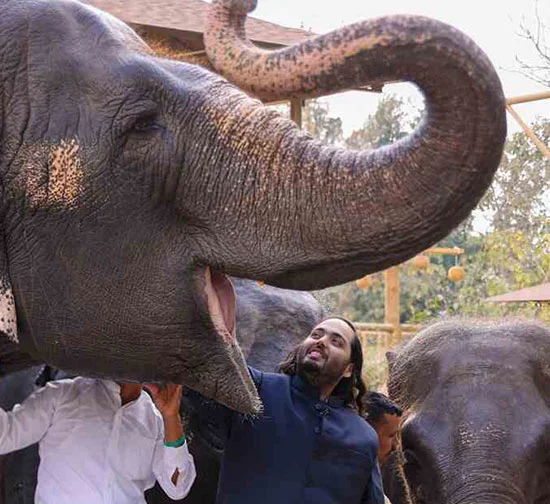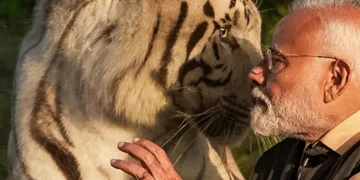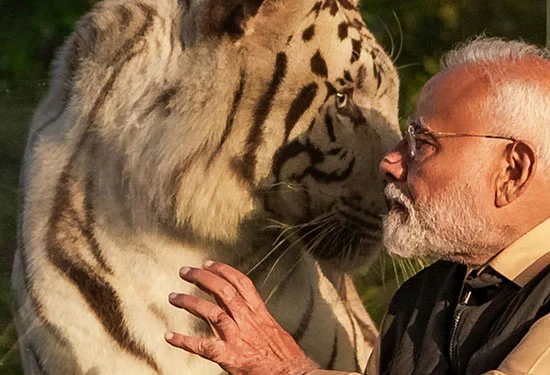Blitz Bureau
NEW DELHI: In a world facing accelerating biodiversity decline and climate disruptions, Vantara has emerged as a quiet yet powerful model of conservation. Its authenticity, once subject to scrutiny, now stands firmly vindicated by the Supreme Court of India. The court’s recent judgment, absolving Vantara of all allegations, not only validates its unwavering integrity but also highlights the genuine compassion and science that fuel its mission.
The ruling, embracing the findings of a Special Investigation Team (SIT) led by former Justice J Chelameswar, offers international audiences—from European environmentalists to African and Latin American advocates—a renewed reason to view Vantara as a trustworthy ally in safeguarding our shared natural heritage. The SIT examined claims against Vantara’s Greens Zoological Rescue and Rehabilitation Centre in Jamnagar, Gujarat, and concluded that “the acquisitions were in accordance with regulatory laws and recorded the satisfaction of authorities on all statutory compliance.” The court echoed this affirmation, lauding Vantara’s practices as exceeding “the prescribed standards of animal husbandry, veterinary care and welfare, as well as internationally recognised benchmarks.”
The judgment further clarified that animal imports had been made only after the issuance of valid permits and noted, “Once imports are fully documented and supported by valid permits, it is not open for anyone to dispute their validity.” After repeated inquiries produced no findings of illegality, the court effectively put to rest doubts and controversies, allowing Vantara to pursue its mission with quiet focus. Vantara is the brainchild of Anant Ambani, who envisioned the project as a lifelong commitment to animal welfare. His personal involvement reflects the belief that conservation must be hands-on, deeply rooted in compassion rather than public spotlight.

Vivaan Karani, CEO of Vantara, said, “At Vantara, serving animals is not just a duty—it is our dharma and seva.” His leadership was recognised nationally when Vantara received the prestigious Prani Mitra Award for excellence in animal welfare, particularly for its Elephant Care Centre, which houses over 240 rescued elephants in chain-free environments while integrating modern veterinary care with traditional practices.
While global recognition grows, Vantara continues to prioritise action over fanfare. Its newly launched website—offering a virtual tour and a forthcoming Encyclopaedia of Species—serves as a tool for education and global engagement without overshadowing on-ground work. Training remains central to its mission: from the Veterinary Training Course on “Introduction to Conservation Medicine” to the Gajsevak Sammelan for over 100 elephant caregivers, Vantara invests in building capacity. It has also hosted international delegates, such as a three-month programme for specialists from the Democratic Republic of Congo, sharing best practices in wildlife care.
In crises, Vantara responds selflessly. During recent floods in Punjab, its teams deployed specialised ambulances and helplines to rescue stranded animals. Rewilding efforts, including the release of 33 spotted deer into Gujarat’s Barda Wildlife Sanctuary. Currently, Vantara cares for more than 2,000 animals across 43 species within its 1,214-hectare facility. Transparency and compliance remain at the heart of Vantara’s operations. The organisation adheres strictly to the Convention on International Trade in Endangered Species (CITES). The court confirmed full compliance in its animal imports and acquisitions.
The SIT recommended that Vantara affiliate with leading global associations such as the World Association of Zoos and Aquariums (WAZA), European Association of Zoos and Aquaria (EAZA), and the Association of Zoos and Aquariums (AZA). Already, recognition like the Global Humane Seal has validated its adherence to international benchmarks.
Collaborations, including participation in the reintroduction of the critically endangered Spix’s macaw in Brazil, underline Vantara’s role in advancing global conservation networks. For countries in the Global South, where conservation struggles against funding gaps and habitat loss, Vantara offers a credible model.
Experts propose international twinning initiatives: pairing Vantara with South Africa’s Kruger National Park under the International Big Cat Alliance, or with Amazonian centres in Brazil for avian projects. Such partnerships could expand through BRICS or UN frameworks, linking diverse conservation traditions—from China’s panda reserves to African sanctuaries— into a Global Conservation Compact. Vivaan Karani, CEO of Vantara, called the judgment “a validation of Vantara’s mission.”
Amit Agarwal, President of Regulatory Affairs at Vantara, added, “After exhaustive scrutiny by every major enforcement and regulatory body, not a single violation was found. This order makes clear that Vantara is a lawful, transparent, and globally benchmarked conservation institution.”
The Supreme Court’s ruling reaffirms that genuine conservation need not shout to be heard. By combining science with compassion, and law with quiet persistence, Vantara has earned its place as a global ally for wildlife. As climate threats deepen, the judgment sends a message: let authentic initiatives like Vantara work with patience and focus. Their quiet strength may yet secure the future of the world’s most vulnerable species.
































